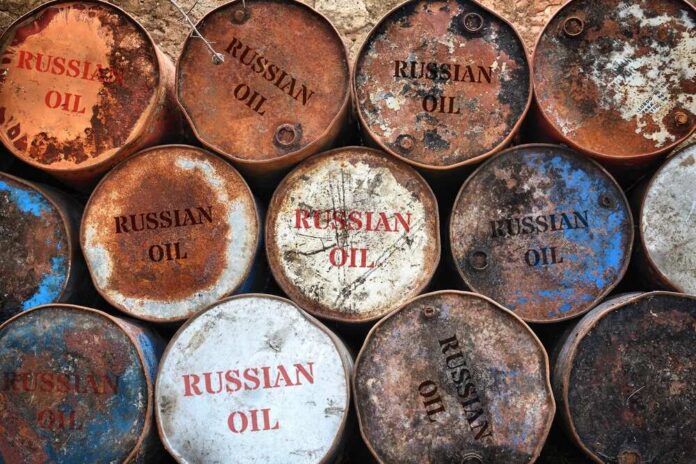
Despite the sanctions imposed by Western countries, Russian oil exports have returned to the levels seen before the nation’s invasion of Ukraine.
The G7 nations, the European Union and Australia imposed a price ceiling of $60 per barrel on Russian oil, limiting their maritime services industries, including insurance and trade finance, to offer their services only for Russian oil sold below that benchmark.
The International Energy Agency’s monthly oil market report revealed that Russian oil exports in March reached the highest levels since April 2020, despite the price ceiling imposed on them.
In the meantime, Russian oil exports generated $12.7 billion in revenue last month, marking a $1 billion increase but still representing a 43% decrease compared to the same period last year.
The Russian government heavily relies on the energy sector to generate revenue.
In order to bypass the price ceiling, Russia has to rely on maritime service industries outside of the G7, which are typically pricier and less dependable.
Western nations’ attempt to restrict the Russian oil market has faced opposition from countries that prioritize cost-effective and dependable energy sources. As per an analysis by S&P Global, China experienced a 43% year-over-year surge in Russian oil imports two months ago and is willing to purchase reasonably priced crudes that have been rejected by Western nations.
Furthermore, as trade cooperation between the two nations grows, Russian economic actors have started to use the Chinese yuan more than the US dollar.
Russian Oil Exports Rebound To Pre-War Levels Despite Western Sanctions
Sanctions have done more to diminish the global standing of the dollar than punish Russia for rogue behavior:
https://t.co/4gt3MTkQXp— surya (@SecVII) April 15, 2023
In spite of being a member of the G7, Japan will keep importing crude oil from a project located in the far eastern region of Russia to secure access to the natural gas reserves present at the site, as per a statement made earlier this month by an official from the Japanese economy ministry.
The move is aimed at ensuring a stable supply of energy for Japan, which has a shortage of energy resources.
Japan has been less enthusiastic than other G7 countries in extending full-fledged support to Ukraine, owing to its reliance on Russian energy. Approximately one-tenth of Japanese natural gas imports come from Russia. In contrast, Germany, which used to rely on Russia for over half of its natural gas imports, hurriedly sought alternate power sources when the invasion began in early 2022.
According to the International Energy Agency, a sudden decrease in oil production by OPEC could exacerbate an anticipated oil supply shortfall in the latter half of 2023. This, in turn, may raise oil prices during a period of increased economic uncertainty, even as industrial activities slow down in the world’s major economies.





























